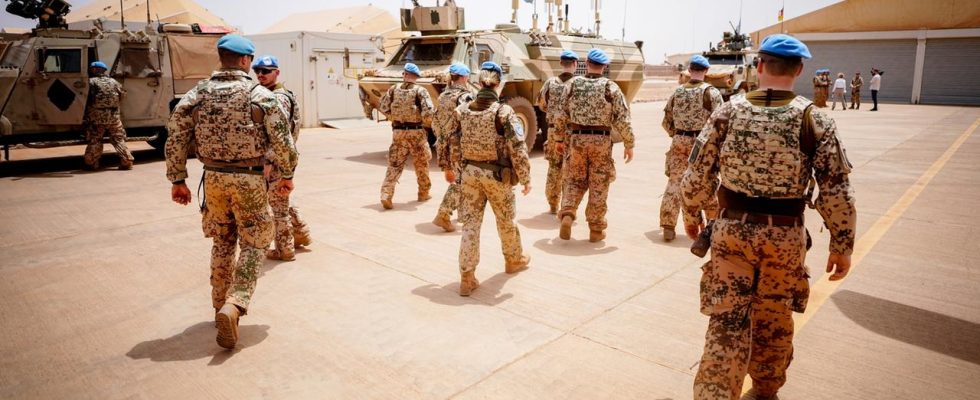The last Bundeswehr soldiers have left Mali. Defense Minister Pistorius wants to honor them with an appeal to return on Friday. The recognition for the soldiers is great, but the results of the mission are sobering.
In the end, all the politicians in Berlin can do is thank the soldiers. A total of around 20,000 have risked their lives in Mali over more than ten years to provide security as part of the UN peacekeeping mission MINUSMA.
The withdrawal of the Bundeswehr parliamentary army was a responsible decision, says the leader of the Green Party, Britta Hasselmann. “I can only once again express my deepest gratitude to all those involved on site. These include the soldiers, but also many people from NGOs who accompanied the situation in Mali,” said Hasselmann.
Most dangerous deployment of the Bundeswehr
The UN mission in West Africa was recently considered the Bundeswehr’s most dangerous mission. Twelve soldiers were wounded in a suicide attack in 2021. In 2017, two German pilots died when an attack helicopter crashed. In the meantime, more than 1,000 Bundeswehr soldiers were stationed in Mali. However, the operation did not bring lasting peace in the region.
The conclusion of the chairwoman of the Defense Committee, Marie-Agnes Strack-Zimmermann, is correspondingly ambivalent: “One thing is positive: within the framework of the United Nations, we contributed to ensuring that the people there had a chance to live again after a civil war survive,” says the FDP politician.
The situation in Mali has not improved
Despite the UN and the Bundeswehr, a military junta, supported by Russian Wagner mercenaries, has seized power in Mali. At the same time, Islamist terrorist groups are spreading throughout the Sahel region. The Bundeswehr has not been allowed to carry out its original mission to clarify the security situation in Mali with the “Heron” drone for months. The military rulers had forbidden it.
For future missions in such crisis areas, the demands should not be raised too high, says Strack-Zimmermann. The Bundeswehr can contribute to stability and security. “But if political solutions do not come during this time when the Bundeswehr is on site, then the Bundeswehr will not expect miracles.”
It is better to empower and equip local forces
Mali, Niger, Burkina Faso – the military took power in all three countries – even though international troops were in the Sahel zone. In the future, the Africans themselves will have to be trained and supported with materials so that they can ensure peace themselves, says the development policy spokesman for the Union parliamentary group, Volkmar Klein.
“We need to expand rather than reduce the Bundeswehr’s equipment support, especially in the pioneer area. We need to continue to support the Kofi Annan International Peacekeeping Training Center in Accra, because African peacekeepers are trained there and are then supposed to ensure security on site. That’s me “rather than the Bundeswehr,” said Klein.
Development Assistance should help with stabilization
Even after the withdrawal from Mali, development cooperation will continue, says the responsible minister, Svenja Schulze. Because that is in Germany’s interest. “The Bundeswehr will withdraw, but we will remain in the region. We want to help build social security systems and establish a tax system.” The states as a whole should be stabilized so that terrorism can be pushed back, said Schulze.
The UN operation failed, the Bundeswehr is out. And there is currently little hope for Mali and the Sahel.
Uli Hauck, ARD Berlin, tagesschau, December 12, 2023 7:35 p.m

